
Environmentalists and fishermen in northern Norway are warning of a Russian invasion of alien crustaceans which are threatening to ruin the local sea fauna. They say the giant red king crab is spreading with alarming speed from Russian waters along the Norwegian coast, destroying everything in its wake.
The crab has few natural enemies, and is considered to be an omnivore, digesting everything from cod larvae to other crabs.
But it is also a sought-after delicacy. Lars Petter Oeye takes gourmet tourists on fjord crab safaris near the border with Russia, high up in Norway’s Arctic north.
Here, divers pick crabs off the sea floor. Mr Oeye says the fjord is crawling with them.
“It is not abnormal that you might see 10,000 crabs together. It might look scary, because people don’t know that this is the way king crabs behave.
“I started to dive in 1987. At that time we had found the first crabs in these waters, but we never saw king crabs in shallow depths or in diving depths at that moment.”
Fishing quotas
The red king crab is native only to the north Pacific around the Kamchatka peninsula and neighbouring Alaskan waters.
Soviet scientists introduced the species to the Russian Barents Sea near the border with Norway in 1960. They wanted to increase the yield from local fisheries.
Since then, millions of crabs have spread west. Environmentalists like WWF Norway’s Rasmus Hansson say they must be stopped.
“They don’t belong here. The biodiversity convention states specifically that introduced species is one of the four most important factors for species extermination in the world.
“With the king crabs, we know that they are an enormous crab, today it’s about 20 million of them in the Barents Sea. Twenty years ago there were zero.”
Mr Hansson says the present annual fishing quota of 300,000 crabs must be increased. Local fishermen agree – too many king crabs ruin their nets.
Big money
They also know a large king crab quota means big money. Neighbouring Russian king crab fishermen have a quota 10 times that of their Norwegian colleagues.
They can afford to keep their fishing fleet in excellent shape between seasons in an expensive Norwegian wharf.
The Norwegian government is considering increasing the quota for Norwegian fishermen to reflect this reality, and to control the spread of the crab. Mr Hansson sees no need to wait.
“These animals eat things. They obviously make a difference down at the bottom of the sea,” he said.
“We still don’t quite know what, but we may be in for a nasty surprise when research has concluded on their impact on the ecosystem.”
Mr Oeye agrees more king crabs should be caught, but thinks the crab threat is sometimes exaggerated.
“Of course we should say it is an invasive species, and of course we don’t know enough. But it’s not like they’re really destroying the bottom of the sea.”
If the government does increase quotas and makes more of the red king crabs available, it would probably please both fishermen, environmentalists and seafood lovers.
Source: BBC news



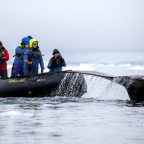
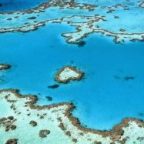
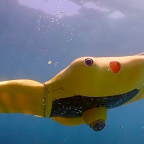
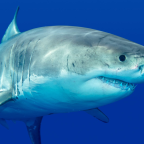
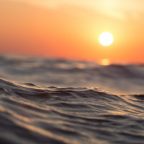
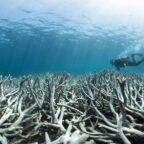
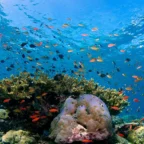


Social Profiles